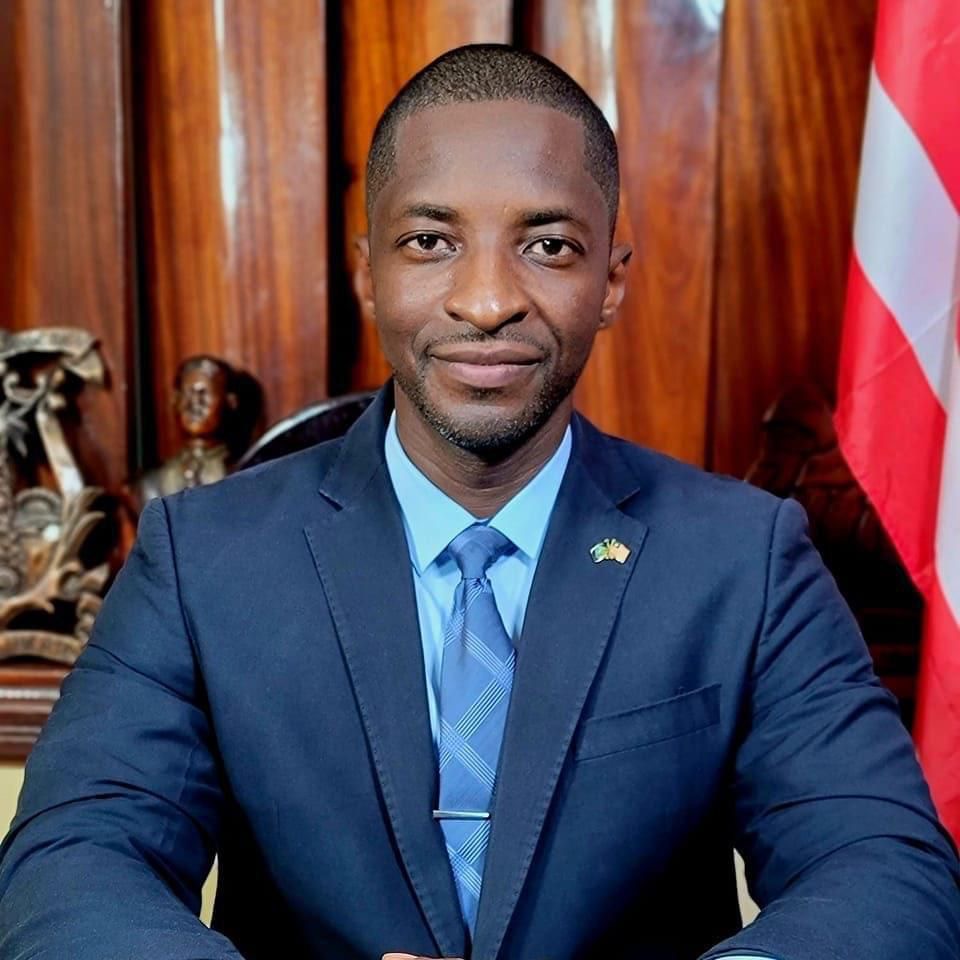“It Shouldn’t Be a Mere-bluff of Signature” Former Presidential Candidate Reacts to War & Economic Crimes Court’s Establishment

By: Sylvester Choloplay
Email: sccholoplay@gmail.com
May 19, 2024 – Monrovia:
The political leader of the Liberian National Union (LINU) Dr. Clarence K. Moniba is strongly urging the Boakai-Koung Government to take seriously the implementation aspect of the War and Economic Crimes Court (WCC) establishment in Liberia.
According to Dr. Clarence K. Moniba, the signing of WCC should not be a mere-bluff by the Rescue Government to build citizens hope, rather, be implemented so that it brings relief and the sense of accountability and integrity to the country and its people.
On May 2, 2024, H.E. President Joseph Nyuma Boakai signed an executive order #131 for the establishment of War and Economic Crimes Court, following it passage by the Liberian Legislature.
The LINU Political Leader in a press release recently said throughout Liberia’s history, the creation of laws has not been a problem, rather, the implementation of these laws.
Attributing his evidence to the fact that no one has gone to jail for corruption in the past 20 years. He stressed, that if the Court’s process should be a success, there should be amendments of statutes that protect war criminals.
“If we want the war and economic crimes court to truly succeed, and not just be a political stunt, the government should know that we need amendments and repeals of statutes that have protected war criminals and corrupt officials.” Moniba said.
He called for specific legislative changes, including amending Section 17.1 of the Judiciary Law, which restricts the practice of law in Liberia to Liberians only, and repealed the 2003 Act granting immunity for civil and criminal acts.
“No one should be immune from accountability to the Liberian people,” he asserted.
Meanwhile Dr. Moniba also expressed his frustration with the current state of the nation, highlighting issues such as inadequate educational facilities, unpaid civil servants, and poor infrastructure.
“The truth is, right now – people are frustrated – frustrated because children go to school to sit on dirty floors and broken benches. Frustrated because civil servants are not paid for months; and frustrated that with the rains coming, our dirt roads will soon turn to mud deathtraps,” he said.
He also criticized the recently submitted budget, pointing out the stark pay disparity between lawmakers and essential workers like teachers, doctors, military personnel, and police officers.
“When government expenditure on itself eats the biggest share of one of the smallest national budgets in the world – we as a nation will also continue to remain beggars, instead of leaders,” he declared.
The LINU political leader outlined a vision for national development, urging the Boakai-Koung Administration to adopt policies that would transform various sectors, including agriculture, education, healthcare, infrastructure, and the fight against corruption.
“In agriculture, there is no other way to put it – we currently do not have the policies in place that will ensure that we produce enough food to feed our growing nation of five million people,” he noted.
Adding, “In education, the reality is that we are failing the younger generation by depriving them of access to quality education. How many schools in Liberia have computer labs or libraries, electricity, or even indoor toilets? Educating the children of Liberia is serious business”
Dr. Moniba meanwhile echoed calls for unity and action. “We must believe and demand nothing less to ensure the greatness of our nation because that is what we as Liberians deserve. There can be no excuses – only results. As I said when I first started, Liberia will be a great nation one day, but it is up to us, all of us, to leave a better, more developed, and unified nation to the next generation.
He then sent out a passionate plea for a new Liberia, driven by justice, accountability, and true transformation, resonated with many, underscoring the urgent need for substantial and meaningful change in the nation’s governance and societal structures.



